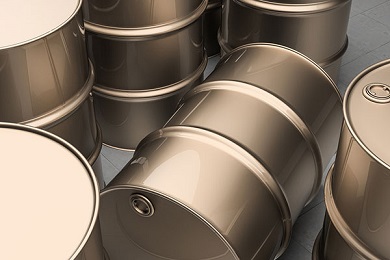Polymers Petrochemicals Plastic Recycling 06-04-2019 - Arhive
The Texas Alliance of Energy Producers Annual Meeting and Expo was held this week in Irving, Texas, just northwest of Dallas. Guests were welcomed by the Alliance’s own Jim Beck, the statewide organization’s chairman of the board.
Petroleum Economist Karr Ingham (left) moderated an oil and gas economic panel made up of API Chief Economist Dr. Dean Foreman (center) and Dr. Mine Yucel, senior V.P. and senior research advisor, Federal Reserve Bank of Dallas.
Beck introduced Petroleum Economist Karr Ingham, who has been a devoted member of the Alliance for nearly 20 years. To open the event’s general session, Ingham moderated an oil and gas economic panel, comprised of Dr. Dean Foreman, chief economist with the American Petroleum Institute (API); and Dr. Mine Yücel, senior V.P. and senior research advisor with the Federal Reserve Bank of Dallas.
During the panel session, the Texas vs. national economies were examined. Foreman assured attendees that although the Permian has “had some ebbing” earlier this year, it is still going strong. Cost effectiveness and solid productivity have been the primary drivers behind the Permian basin.

Aquafil fine-tunes carpet recycling efforts in U.S.
Expands U.S. footprint, partnership with Delos for area rugs
Cartersville, Ga.– Aquafil, which develops Nylon 6 from pre- and post-consumer waste, is accelerating its U.S.-based efforts with new technologies and a new recycling plant.
Samara Croci, head of U.S. brand communication for Aquafil USA, told HTT the company previously had limited capacity, recycling only the fiber it sheered from recovered carpets but not the whole carpet product.
Aquafil USA interior
Aquafil’s Econyl fiber is made of 50% pre-consumer waste and 50% post-consumer waste.
Cartersville, Ga.– Aquafil, which develops Nylon 6 from pre- and post-consumer waste, is accelerating its U.S.-based efforts with new technologies and a new recycling plant.
Samara Croci, head of U.S. brand communication for Aquafil USA, told HTT the company previously had limited capacity, recycling only the fiber it sheered from recovered carpets but not the whole carpet product.
“Now, we’ve implemented a process to deconstruct the carpets into their three main components, and we are able to use all of them,” she explained. “From there, the nylon goes to Slovenia for the regeneration and the other two components go to other recycling facilities.”
The three main components are: nylon, polypropylene and calcium carbonate – the latter comprised of Latex or other non-skid backing product. Once processed, the resulting product is Econyl, Aquafil’s proprietary name for its Nylon 6 fiber.

Aquafil’s Econyl fiber is made of 50% pre-consumer waste and 50% post-consumer waste.
Pictured from the left in Lucerne: René Rossi, head of the Laboratory for Biomimetic Membranes and Textiles at Empa, Ernesto Maurer, Swissmem textile machinery president, moderator Reto Lipp, Jan Smit, co-founder of Cognitive Solutions and ITMF director general Christian Schindler. © James Mason
It has been calculated that the 42 members of Swissmem – the Swiss textile machinery association – can draw on a staggering 4,011 years of combined engineering and processing know-how between them.
A number of the companies mark notable anniversaries in 2019.
Benninger, for example, the resource-saving dyeing technology specialist, is 150 this year, Luwa, a leader in air handling systems, is 80 and flat knitting machine builder Steiger is 70.
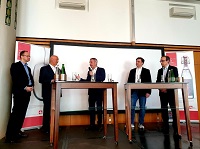
Benninger is set to display latest developments in textile machinery at ITMA 2019 exhibition, in stand B205, hall 2. The textile and garment machinery expo will be held from June 20-26, 2019 in Barcelona.
Benninger is the textile finishing industry’s leading partner for more than 150 years with global branches and service representatives across the globe.
At ITMA Benninger will present the Benninger-Küsters CPB dyeing centre for knitwear and woven fabrics – the only salt-free cold dyeing process, the Tempacta washing steamer for knitted fabrics with freshwater supply that is controlled by the degree of contamination, and the Trikoflex drum washing machine that is available up to a working width of 5400 millimetres.
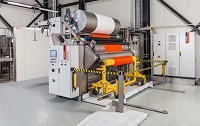
European plasticizers have started April on a healthier note demand wise and spot prices are firming.
There has been a good level of orders in the early days of April, with some sellers stating material is now sold out for the month.
An element of this is buyers preparing ahead of the Easter break in the week commencing on 15 April, when some of them are set to close downstream units for up to a week.
Rising feedstock costs and, in some cases some small supply constraints due to upstream limitations, rather than any technical issues at sites, have also pushed prices up.

Michael A. MarcotteFernando Rosas, commercial director at DAK America’s Unit during Plastimagen 2019.
Mexico City — Materials maker Alpek SAB de CV is responding to customer requests for more use of recycled PET.
“There’s a lot of pressure to increase recycled content,” Fernando Rosas said April 4 at Plastimagen. “We’re working to incorporate more recycled PET into virgin resin.”
With this effort in mind, Monterrey, Mexico-based Alpek in January acquired Perpetual Recycling, a recycling firm based in Richmond, Ind.
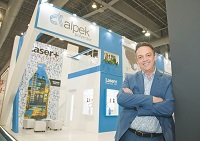
China’s polyethylene (PE) import prices are expected to increase this month after fluctuating at a narrow range in March, on likelihood of reduced May-cargo arrivals which should ease market pressure arising from high inventory.
On 4 April, LLDPE import cargoes were offered at $1,030-1,040/tonne CFR (cost & freight) China, up by $5/tonne compared the weekly assessment on 29 March, according to ICIS data. 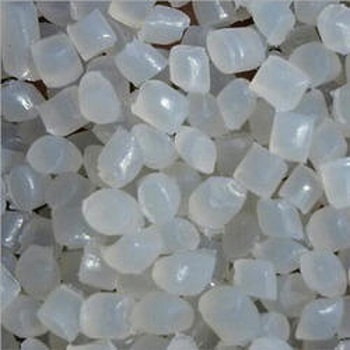
The March explosion at a factory in China that makes key intermediates for the textile dye industry has already had a huge impact on the market there, but talk this week at a conference in Mexico also found predictions of major ramifications in the global market.
“It will undoubtedly affect the global pigment and dye industry in a huge way,” said an industry source on the sidelines of PLASTIMAGEN MEXICO 2019.
A US polymer executive also at the conference said force majeures most likely will be declared and that he has been warning customers to expect delays and higher prices.
There was also talk that Milliken, a US-based company that makes coatings, colourants and specialty chemicals, has been affected by the explosion.
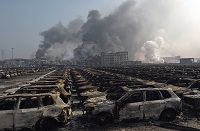
Jürgen Hanel, Head of Technical Textiles at Monforts. © MonfortsAt next month’s Techtextil 2019 in Frankfurt, Monforts will be highlighting all of the innovative features that have made the Montex stenter the leader in the field of technical fabric finishing.
“Techtextil is a very important show for us, because technical textiles are a key pillar of our production programme and many of our existing customers will be exhibiting or attending, as well as those we have yet to meet,” said Jürgen Hanel, Head of Technical Textiles at Monforts. “The show provides us with an opportunity to explain the diverse end-products that can be successfully finished on our stenters, as well as with our coating units.”
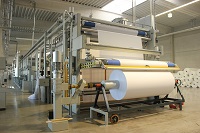
Total is planning to shut its 110,000 tonne/year polystyrene (PS) plant in El Prat, Spain, according to sources.
Some US states are mulling to ban PS for food packaging. Picture source: Photoalto/REX/Shutterstock
One line is expected to be closed by the end of June and the second one by the end of the year, one source added.
The closure would represent a reduction of roughly one quarter of Total’s European PS capacity.
Total confirmed on Friday afternoon its intention to close its PS plant in El Prat, adding it could affect up to 56 employees.
It said it aimed to have an “open dialogue” with the plant’s workers’ representatives to plan for the closure.
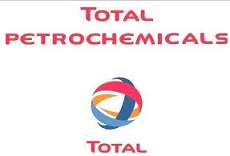
After Texas pushed the United States over the last decade to become the world’s biggest oil producer last year, the heart of the shale revolution is starting to show fatigue.
The volume of crude being pumped out of Texas recently saw its first monthly dip in a year. Oil well productivity in Texas’s Permian basin – the country’s largest oil field – is falling, and the number of drilling rigs operating in the United States has declined for six straight weeks.
Those indicators of future U.S. oil production suggest that the massive surge in output over the past two years cannot continue unabated, and instead will shift to a near-term plateau in supply.
